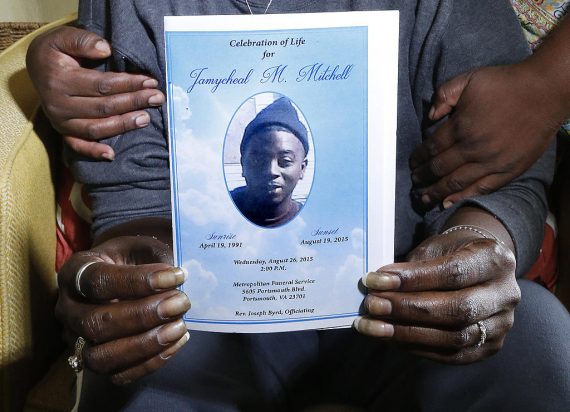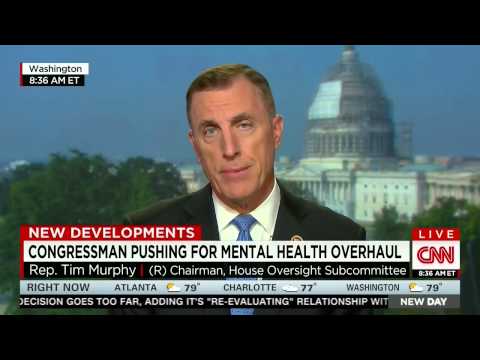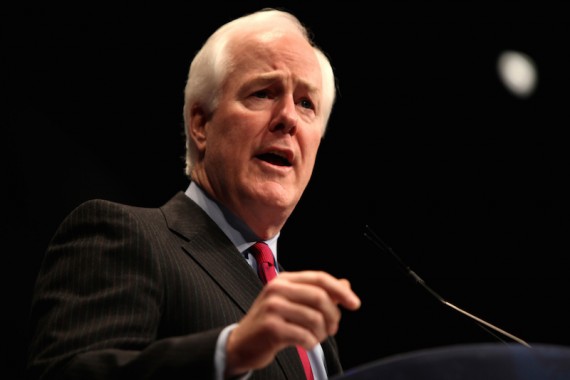
Sonia Adams holds the program for her son Jamycheal Mitchell’s funeral as her sister Roxanne Adams stands behind her Friday, May 6, 2016. Mitchell was found dead in his cell at Hampton Roads Regional Jail.
(12-12-16) Breaking news! The U.S. Department of Justice today announced it will investigate the Hampton Roads Regional Jail in Portsmouth, Va., after repeated requests from mental health advocates following the death of Jamycheal Mitchell, a 24 year-old African American with schizophrenia who suffered a fatal heart attack prompted by starvation after spending 101 days in jail last year.
Seven advocacy groups initially requested an investigation of the jail, including:
- The National Alliance on Mental Illness of Virginia, the state office of NAMI;
- NAMI (National Alliance on Mental Illness), the national organization of NAMI;
- NAMI Hampton-Newport News, a local affiliate of NAMI;
- The ACLU of Virginia;
- NAACP Portsmouth;
- Bazelon Center for Mental Health Law and
- The Mental Health America of Virginia, a statewide organization.
- The Treatment Advocacy Center signed a second version of a letter to the Justice Department sent by the original 7 agencies.
I also called for an investigation, and was joined by The Washington Post, after state agencies failed to publicly explain how Mitchell, who was accused of stealing $5.05 worth of snack foods, died in the jail while reportedly under the daily medical care of a nurse and regular checks by correctional officers. Two investigative reporters for The Richmond Times Dispatch, Sarah Kleiner and K. Burnell Evans, were relentless in investigating Mitchell’s death, and deserve credit for keeping this story alive, as does Gary Harki, with the Virginian Pilot. Another key player in publicly demanding an investigation was Douglas Bevelacqua, a former Virginia inspector general responsible for mental health probes.
All of us who care about the inappropriate incarceration of persons with mental disorders owe a huge thank you to the eight groups and the investigative reporters who focused on this horrific case. It is important to note that the Justice Department did not state that it would specifically investigate Mitchell’s death. This is unfortunate. But it will look at practices in the jail and hopefully its probe will improve services there that will spread across the state. This is a major victory for Virginia NAMI’s Mira Signer, who spearheaded the effort, and it should be further embarrassment for state officials and Virginia agencies charged with protecting persons with mental illnesses who should have investigated this when it first happened but chose instead to simply allow jail officials to investigate and absolve themselves. I will be writing more about this later.
Email message to me from Justice Department official:
Pete,
Because you had previously provided information to our office as we did preliminary work on this matter, I wanted to let you know that our office and the U.S. Attorney’s Office for the Eastern District of Virginia have just formally opened an investigation into the Hampton Roads Regional Jail. Thanks again for your help during our preliminary inquiry. I will be continuing to work on this case going forward, so please do not hesitate to contact me should you have any questions or have any information you believe would aid us in our investigation.







